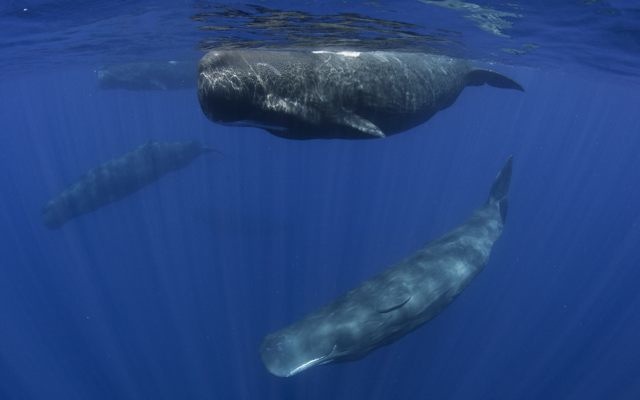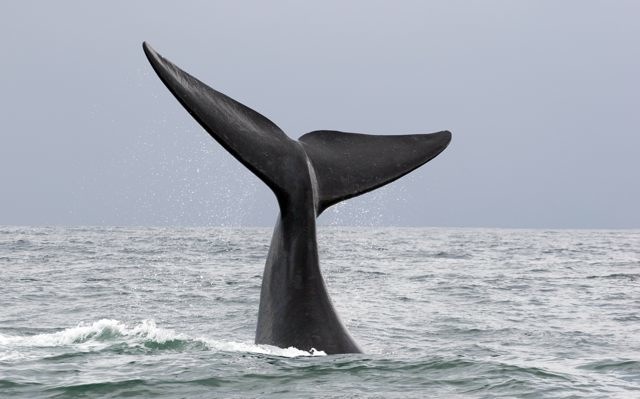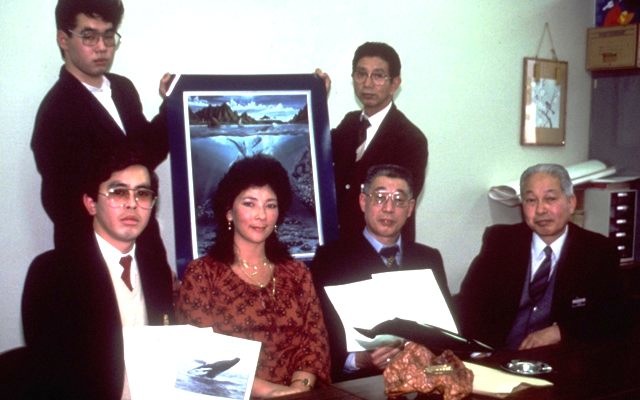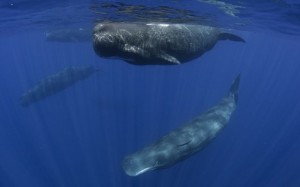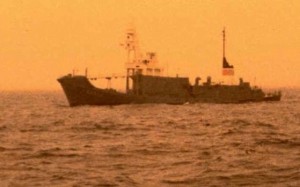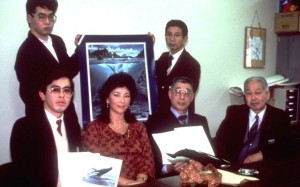Mission: Convince Japan to accept the whaling ban
Japan had announced it would defy the ban and leave the IWC, starting a new and unregulated race to kill the world’s whales.
A whaling ban had been passed. But would Japan abide by it?
It was 1985 and there were finally enough non-whaling nations in the International Whaling Commission that it was possible to turn around this “whalers’ club” and pass rules to restrict whaling, by calling for a moratorium.
The first whaling ban set to take effect was the Sperm Whaling Moratorium
But Japan vowed it would not abide by the ban, and prepared to defy the IWC, effectively ending it as a potential conservation tool.
Problem was, under the rules of the convention, any nations which objected to a rule was not bound by it. The IWC had passed a moratorium on the taking of sperm whales which was going into effect as the first of the IWC moratoriums. But Japan announced that it refused to accept the precedent set for the IWC to restrict whaling. Within Japan, the issue acquired nationalistic overtones, as pro-whale nations were accused of “culinary imperialism”, and the population of Japan responded to Government and whaling-industry PR stating that the main principle involved was the insult to Japan’s sovereignty.
The stage was set for a collapse of the treaty and a retreat back into unregulated whaling. It seemed an impossible deadlock, and the stakes were high: whether or not the major whaling nations would abide by IWC rulings when they protected whales. It appeared that there was no face-saving way Japan could go along with the ban.
EarthTrust had a wire-service feed into its offices with even the small news stories within Japan, and had translators go through them. One thing they found was an obscure story about a fisherman in the town of Odowara who had been touched by a crying whale in the marketplace, and took up a collection to buy and release it.
Upon investigation, it turned out that the animal in question was a Risso’s dolphin, but the story itself was true. In it, ET saw a mechanism.
EarthTrust quickly put together some beautiful awards and testimonials signed by major international pro-whale groups, congratulating fisherman Akira Takase for his compassion. ET the sent a team to Odowara, where in contact with Japan national media they held a ceremony giving international honors to this Japanese whale-saver. Japan’s media played the story at a high profile for two days, and again for a third day when a Cuvier’s Beaked Whale washed up on the beach and ET campaigners organized a Buddhist funeral for it on the beach. Congratulations were given to Japan for its ethics.
ET’s Caroline Takahashi, at aware ceremony for fisherman Akira Takase and his fishing friends, who had saved a “whale” out of compassion.
This three-day span of “Japanese respect for whales” and the honoring of Japanese fishermen by international conservationists turned public opinion, and at the end of that three days Japan’s government announced that it would abide by the sperm whale ban, setting the stage for its nominal compliance with IWC resolutions in what amounted to a breakthrough.
Would Japan have eventually capitulated anyway? All the signs pointed to the opposite conclusion, that Japan was preparing to ignore the IWC as they had threatened to do, and expand world whaling with its client nations in defiance of the whaling commission.
The only thing we can be sure of is that Japan completely reversed it’s strong statements against the whaling ban after three days of solid pro-whale and pro-Japan publicity inside the nation. It was done within Japan at a crucial time by campaigners who spoke the language and understood the culture. It seemed an impossible task, yet there turned out to be a way.

